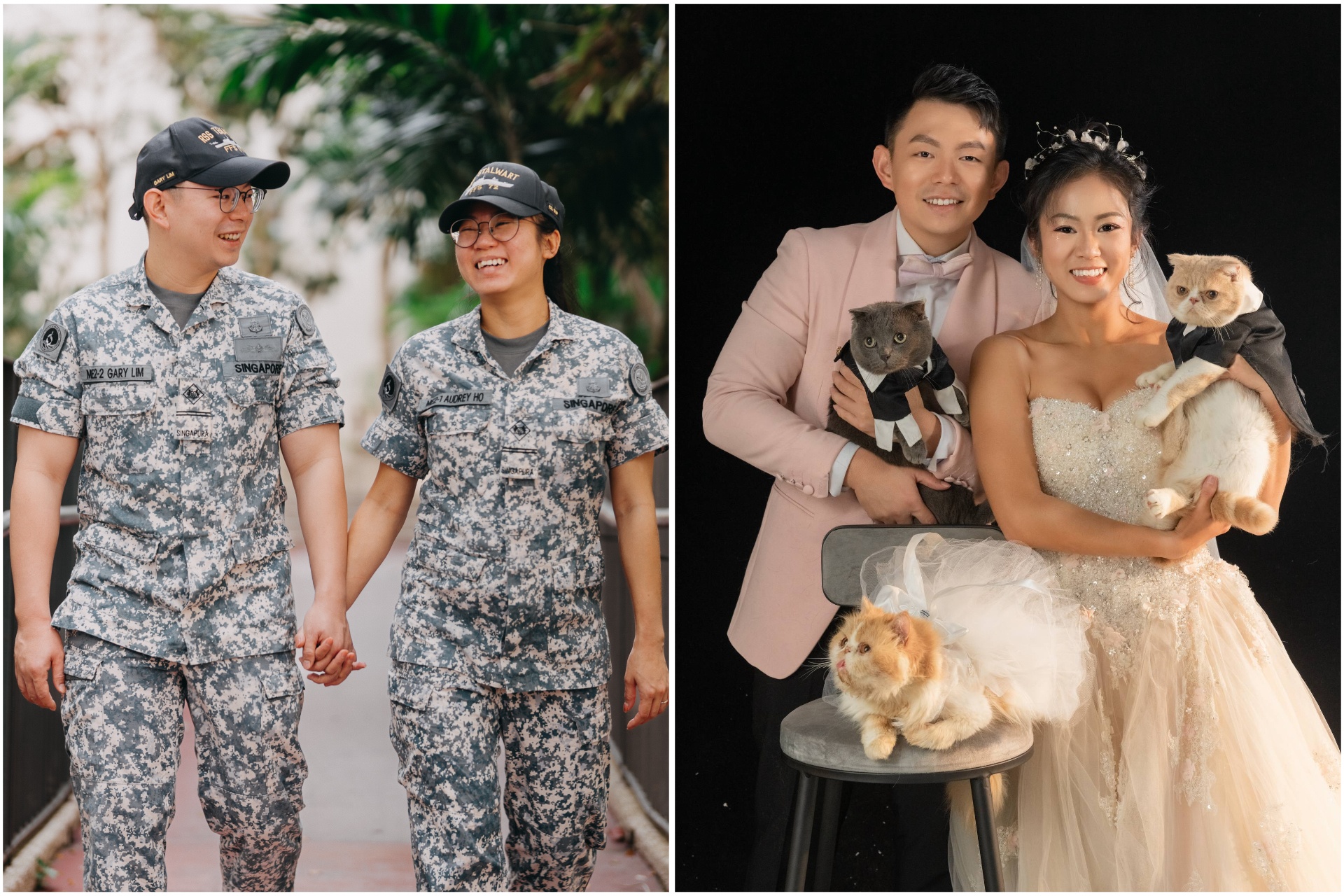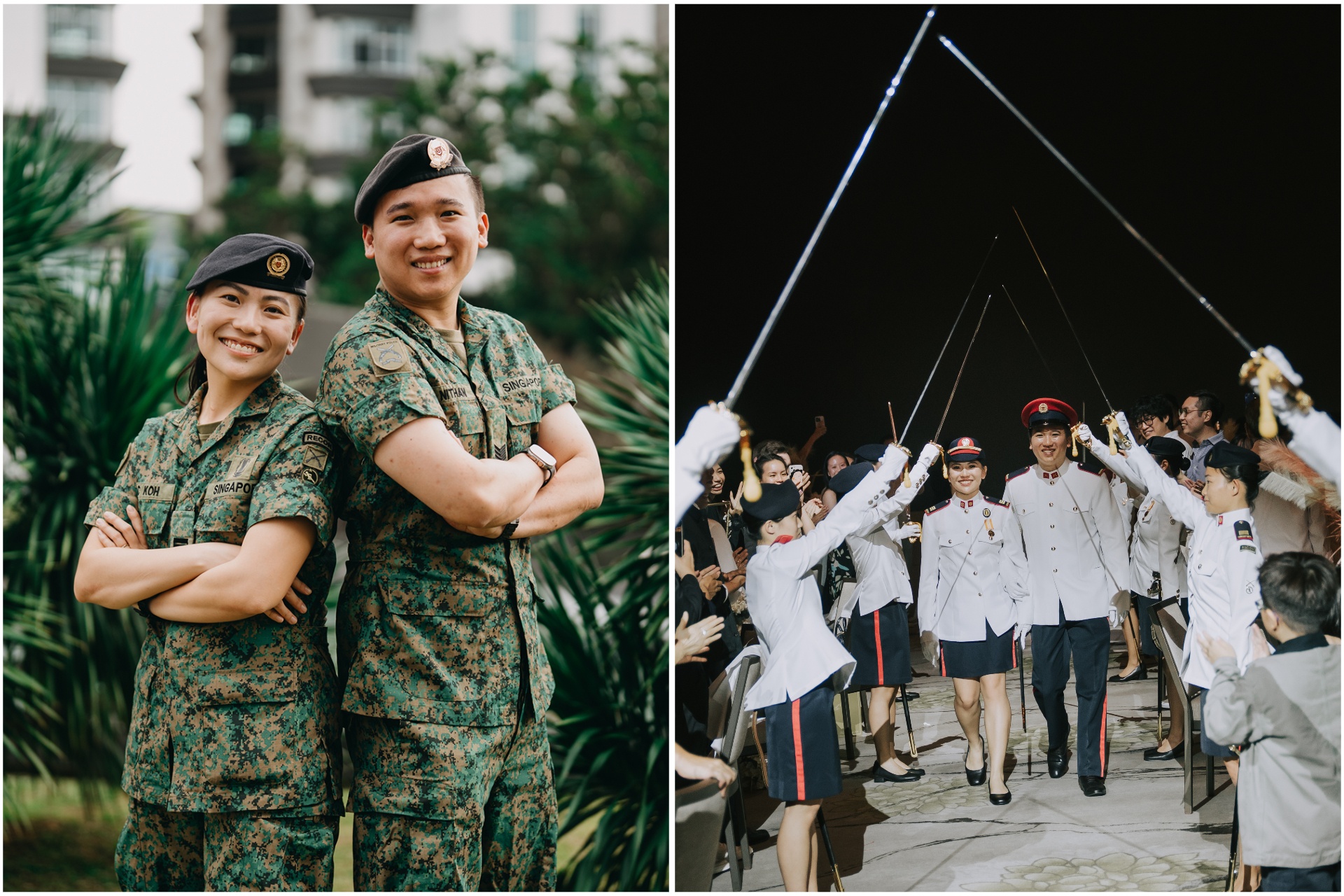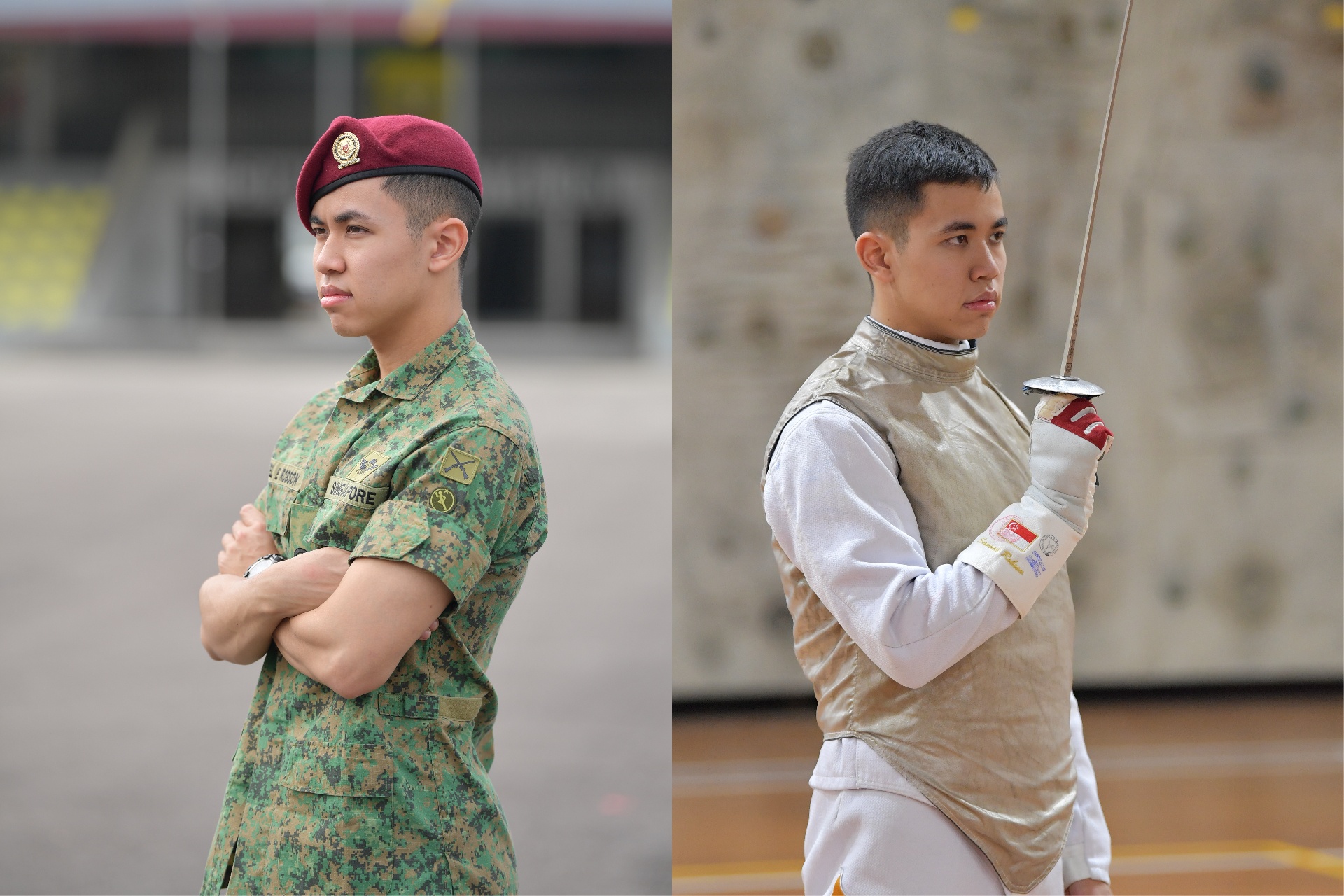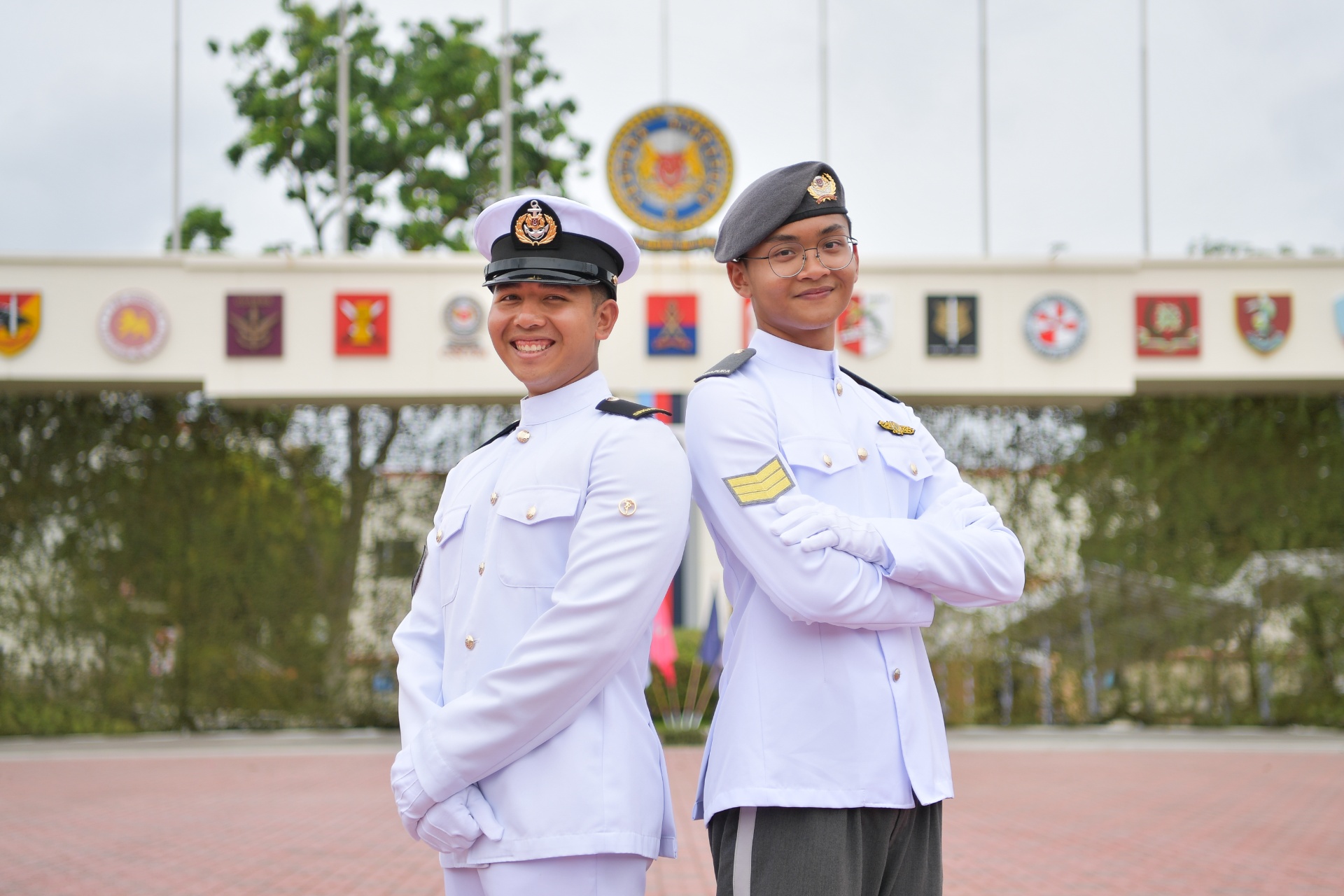PEOPLE
CHALLENGING HIMSELF TO BE BETTER
17 Sep 2021
Easy-going, flexible and humorous – that's 2WO Suraindran Sanjeev's training style when it comes to instructing NSmen.
/17sep21_news2_photo1a.jpg?sfvrsn=72c18470_0)
He's funny and easy-going. He is the trainer who will give you the flexibility of doing it your own way as long as it is within the correct procedure, and will only step in if he spots a wrong technique.
2nd Warrant Officer (2WO) Sanjeev may sound like a dream trainer but his style is partly because of whom he trains. The Armour Infantry platoon trainer from the Combat Team Training Centre in Armour Training Institute instructs Operationally Ready National Serviceman (NSman) platoons.
He explained: "When the NSmen come back, it's mostly about revision 'cos they are already qualified personnel. My role is just to ramp them back up to the level that they were at."
Whenever the NSmen return for their In-camp Training (ICT), 2WO Sanjeev conducts weapon refresher courses and platform training revision to bring them up to speed.
The 36-year-old also conducts currency driving lessons for the NSman Bionix Infantry Fighting Vehicle operators and vehicle commanders so that they meet safety standards before moving the vehicle out for manoeuvre training.
Even though he takes a step back during their training, 2WO Sanjeev will take time out to engage the NSman commanders, to ensure that everyone knows what is going on for the following day's activities.
He also makes the effort to share his experiences and give suggestions to value-add to the NSmen's training sessions – a trait that trainee 3rd Sergeant (3SG) (NS) Ken Soh appreciated. The 33-year-old bike team commander was on his eighth ICT from 16 to 31 Aug; it was the first time he worked with 2WO Sanjeev.
We sit down with 2WO Sanjeev and 3SG (NS) Soh for a quick chat.
/17sep21_news2_photo2.jpg?sfvrsn=7bb7b3f4_2)
Hi 2WO Sanjeev, why you do give NSmen more flexibility when training them? And how do you build rapport with them?
2WO Sanjeev: They have their own command team structure – Company Sergeant Majors (CSMs), Platoon Commanders (PCs) and Platoon Sergeants (PSes) – so we let their own command team take responsibility of their battalion while we fill in the gaps.
The first day that they come in for in-processing and swab tests, I will introduce myself to the command team, pass them my number and tell them that they can ask me anything. I treat them like adults and give them clear instructions on what to do.
It's all about two-way communication. For instance, if the next day's activity is weapon revision and the PC is conducting, I'll give him space and let him assert his command while making sure that what he does is in line in my training plan.
At the end of each day, I will also sit down with the command team and tell them what exactly is happening the next day such as the timings and movement. I could have sent the information through messages but I prefer to do it face-to-face to find out if they have any queries. It's about taking the extra effort to ensure that everyone is on the same page.
How is it different training NSmen?
2WO Sanjeev: When I approach them with something new that was different from their active days, I'll explain the reason for the change 'cos they'll wonder why it is different. And they will feel more convinced after your explanation, if not, they will just think that you're smoking (slang for deceiving) them.
I also prefer to value-add, impart to them whatever I've learnt and seen during my tours and give them suggestions to do certain things better. When they take my advice and realise it works, they will come back and tell me: "Eh encik, yah hor." That's also when they know that you know your stuff and they become more receptive.
3SG (NS) Soh: He knows that as NSmen, we may forget things here and there. While he'll remind us of the proper procedures from time to time, he doesn't really handhold us – he lets us try as long as it's safe. He's also always giving us feedback and sharing insights based on his own experiences.
For instance, he will suggest more efficient methods for us to get around a particular terrain, what is a better infiltration method and how to cover blind spots while making sure that safety is our priority, which are all very helpful.
/17sep21_news2_photo3.jpg?sfvrsn=e067f4d6_2)
2WO Sanjeev, we heard that you have no qualms about taking NSmen to task if they don't have a good attitude?
2WO Sanjeev: I can be nice but when it's time to call people out, I will. There are some who come in as wet blankets and say ICT is a waste of time. That's when I will pull them aside and ask why they turned up for ICT if they weren't interested. I will also tell them that I can fail their ICT 'cos they need to be a contributing person. That's when it hits them.
If I have time, I like to go a bit deeper and find out the reason for their attitude, so I will ask their PC and PS if they were always like that. And then when I follow up, one on one, that's when the NSmen will open up.
If I can just influence that one soldier in that ICT, I'm quite certain that when he comes back and sees me, he won't go back to his original attitude. At least I know it will be based on the last touch point he has with me.
/17sep21_news2_photo4.jpg?sfvrsn=f488b695_2)
What do you enjoy most about instructing NSmen?
2WO Sanjeev: You don't have to paint on a fresh canvas – these guys are not new to this, it's just a refresher. In this case, you cannot lie about your capability. If you're unsure and you lead them, they're going to catch it straightaway.
If you don't know what you are teaching or what you are doing, they can sense it and are going to call you out. This keeps me on my toes ‘cos I'm expected to know my stuff. If I don't, I will have that drive to find out 'cos I don't want to look like a fool in front of everybody. That's the real driving factor.
For me, it's also a way to gauge how good I am as a trainer
and the best way is to find a neutral audience, which is NSmen. When
they know that you are teaching properly, you can see it from their body
language. They look up and listen, and I can see their reactions from
where I am.
Lastly, what gives you satisfaction as a trainer?
2WO Sanjeev: When they say thank you at the end of their ICT, it's that simple. They will say "Sir, I'll see you next year!" That's when you know that they've enjoyed themselves, you've made an impact and they are looking forward to coming back.
3SG (NS) Soh: Well, he made my ICT enjoyable! As scouts, we spend a lot of time waiting around for the mission and he brightens up our waiting time. From sharing his funny stories and experiences to asking us about our lives, he talks to us a lot and takes our mind off the lull periods. We may only have met him for two weeks but he really made a difference to our ICT.
ALSO READ IN PEOPLE

When two hearts set sail together
13 Feb 2026
Naval engineers ME2 Gary Lim and ME2 Audrey Ho share how they navigate love, military service, and (soon) parenthood.

I’ve always got your back
11 Feb 2026
She’s an Army officer, and he’s the (NS)man supporting her dreams. CPT Koh Xinci and 3SG (NS) Nitro Chan share their love story with us – including their unique wedding!

He’s an NSF Commando & medal-winning fencer
28 Jan 2026
His team won gold at the SEA Games 2025, and he hopes to represent Singapore in more competitions to come. Meet fencer CPL Samuel Elijah Robson, who is serving as a Commando during his full-time NS.


